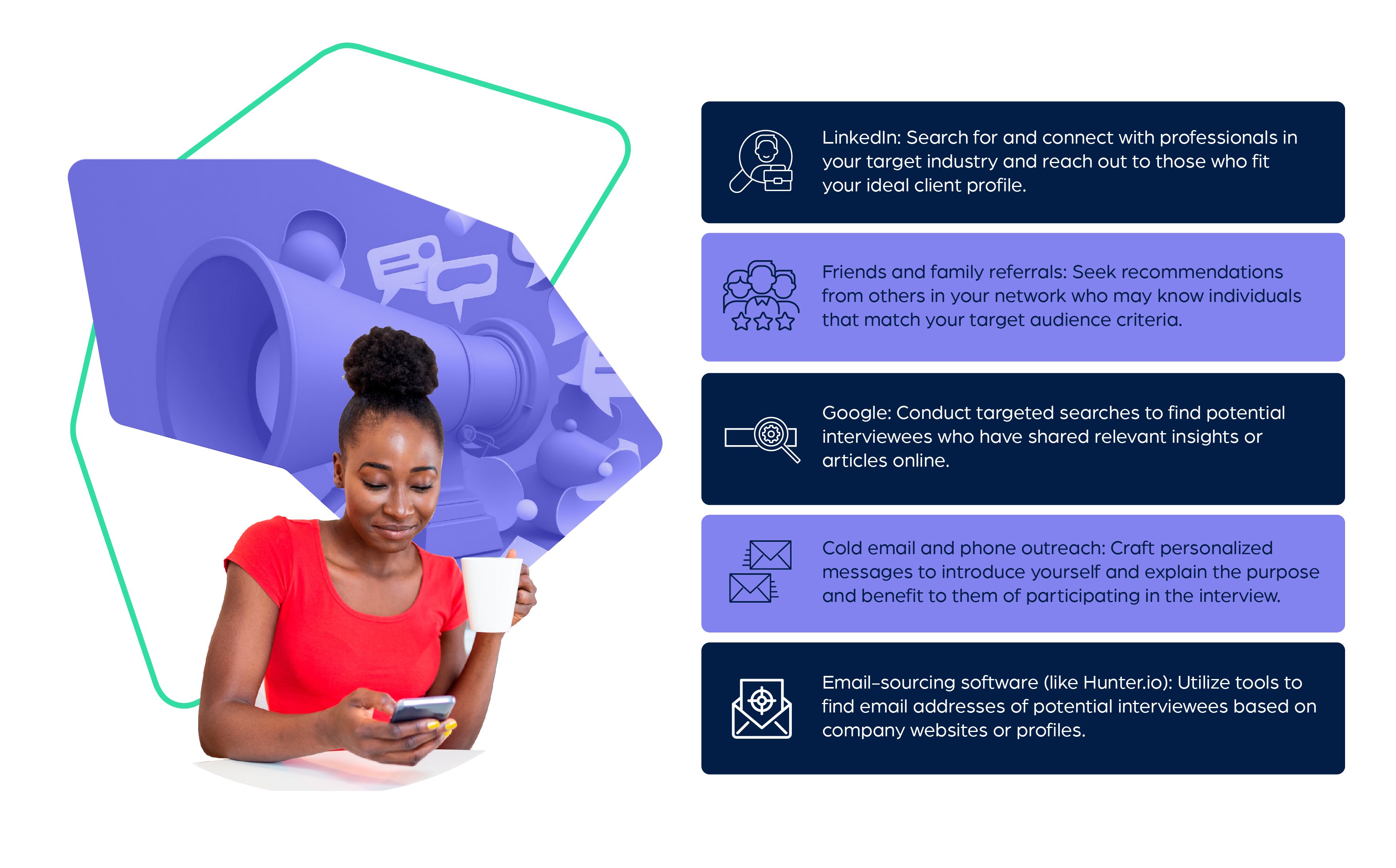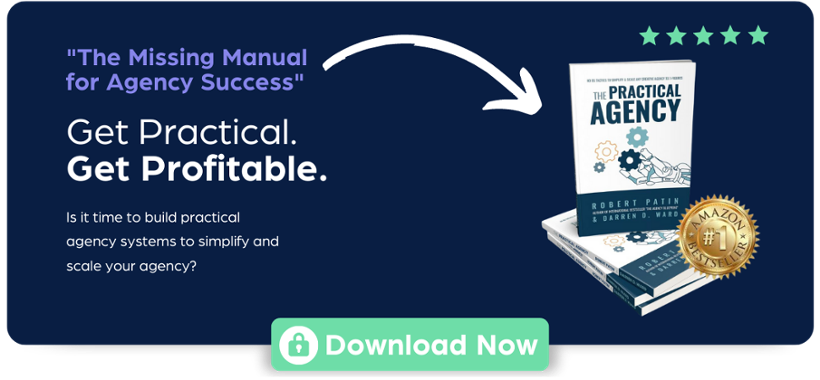
Have you ever had a sales dry spell so rough that it made you question your entire offer, and if it’s something your ideal client even WANTS?
Even if you think you have the best offer in the world…
If your prospective clients aren’t buying, nothing else matters.
Especially in the earlier days of spearheading a creative agency, it’s important to keep your ideal client top of mind as you craft your offer and communication resources.
To ensure your offer is so compelling that they would be crazy to say no, you need to delve into their minds through research to discover how to offer what they want to buy.
With the right approach - not only can you collect valuable feedback from the perfect source, but maybe curate a future paying client too.
Research is power

When it comes to performing market research, speaking directly to your ideal client is the most effective method. This is because you get:
- In-depth insights when you uncover valuable information about pain points, desires, and challenges.
- Real-time feedback that allows you to gain a deeper understanding of your ideal client's needs.
- Personal connection when you establish trust and encourage candid responses, enabling you to gather more authentic and meaningful data.
Not sure where to find these ideal client research candidates? Consider utilizing the following channels:
- LinkedIn: Search for and connect with professionals in your target industry and reach out to those who fit your ideal client profile.
- Friends and family referrals: Seek recommendations from others in your network who may know individuals that match your target audience criteria.
- Google: Conduct targeted searches to find potential interviewees who have shared relevant insights or articles online.
- Cold email and phone outreach: Craft personalized messages to introduce yourself and explain the purpose and benefit to them of participating in the interview.
- Email-sourcing software (like Hunter.io): Utilize tools to find email addresses of potential interviewees based on company websites or profiles.
As you research potential interview candidates, focus on contacting CEOs or other management-level contacts that would likely participate in the buying decision process with your agency. The goal is to get inside the mind of the person responsible for deciding whether or not a contract is signed.
Securing the interview
Once you have identified a research candidate, your first impression is crucial. Adopt a you-focused attitude as you introduce yourself, and emphasize the value that your participant will receive from the interview.
For example, you could say something like, "As a CEO in the industry I provide {INSERT OFFER HERE} services for, I wanted to ask you a couple of questions. In exchange for a FREE strategy session, could I have 15-20 minutes of your time to pick your brain?"
If your first attempt doesn't succeed, don't get discouraged. Unless they ask you not to reach out again, make a note to follow up in a couple of weeks. Maintain a you-focused approach, showing genuine interest in their business by commenting on recent industry events, or asking how their business is going.
Conducting a successful interview
Once you have secured an interview with your research subject, it's time to strategize the questions you will ask. Here are some key points to consider asking about:
- What specific challenges they are currently facing in their business (such as NPS, LTV, average order value, messaging, etc)?
- What resources or support do they have in place to address the challenges they mentioned?
- Their organization’s current buying decision process, including key decision-makers and factors that influence their choices.
- How your service could potentially impact their business and address their pain points.
Once you gather this information, review and align it with your offer. Does what you're selling align with what they are looking for?
Use their specific feedback to tailor your offer to their needs. If you play your cards right, the interview itself could even present an opportunity to convert the interviewee into a paying client in the future. By demonstrating that you are actively using their insights to customize your offer, you offer a white-glove service that is hard to resist. Make an effort to maintain communication after the interview, leveraging the shared insights to nurture the relationship further.
Implementing feedback for better results
Now that you have conducted interviews and gathered valuable feedback, it's time to ensure it is reflected in your offer.
Messaging alignment:
- Identify specific messaging elements that didn't resonate with your interviewees.
- Refine your messaging to address their pain points, values, and desired outcomes.
- Incorporate their preferred language and communication style into your marketing materials.
For example, if your interviewee mentions that technical jargon in your messaging is confusing, simplify your language to make it more accessible and engaging.
Budgetary constraints:
- Explore ways to provide flexible pricing options or package customization to accommodate various budgets.
- Highlight the cost-effectiveness and long-term value of your offer to justify the investment.
For example, if your interviewee expressed concerns about pricing being too high, consider offering tiered pricing plans or payment options to make your services more accessible.
Adjusting the sales cycle:
- Take note of interviewees' comments on timelines for their decision-making processes.
- Adapt your sales strategy to align with their specific buying habits and timeline.
- Extend follow-up efforts and nurture leads if necessary to increase conversion rates.
For example, if your interviewee mentions that their organization typically takes three months to make a purchase decision, extend your lead nurturing period and provide additional touchpoints during that timeframe.
Customizing the offer for specific needs:
- Identify common pain points or challenges shared by multiple interviewees.
- Develop tailored solutions or additional services that address those specific needs.
For example, if your interviewee expresses a recurring challenge related to data analysis, consider offering a specialized analytics package as an add-on service to meet their specific requirements.
When you actively implement feedback from your interviews, you’re demonstrating to your ideal clients that their opinions and needs are valued. This process of refining and aligning your offer based on their insights will not only improve your chances of converting interviewees into paying clients but also enhance the overall appeal and effectiveness of your offer.
Create an offer they can’t refuse
Gaining valuable insights from your ideal clients through direct interviews empowers you to refine your offer and align it with their specific needs. By addressing their feedback regarding messaging, budgetary constraints, sales cycle, and customizing your offer, you are creating a tailored proposition that resonates with your target audience.
Embrace the opportunity to listen to your clients, adapt your strategies, and continuously improve your offer to achieve greater success in serving your ideal clients and growing your agency.
